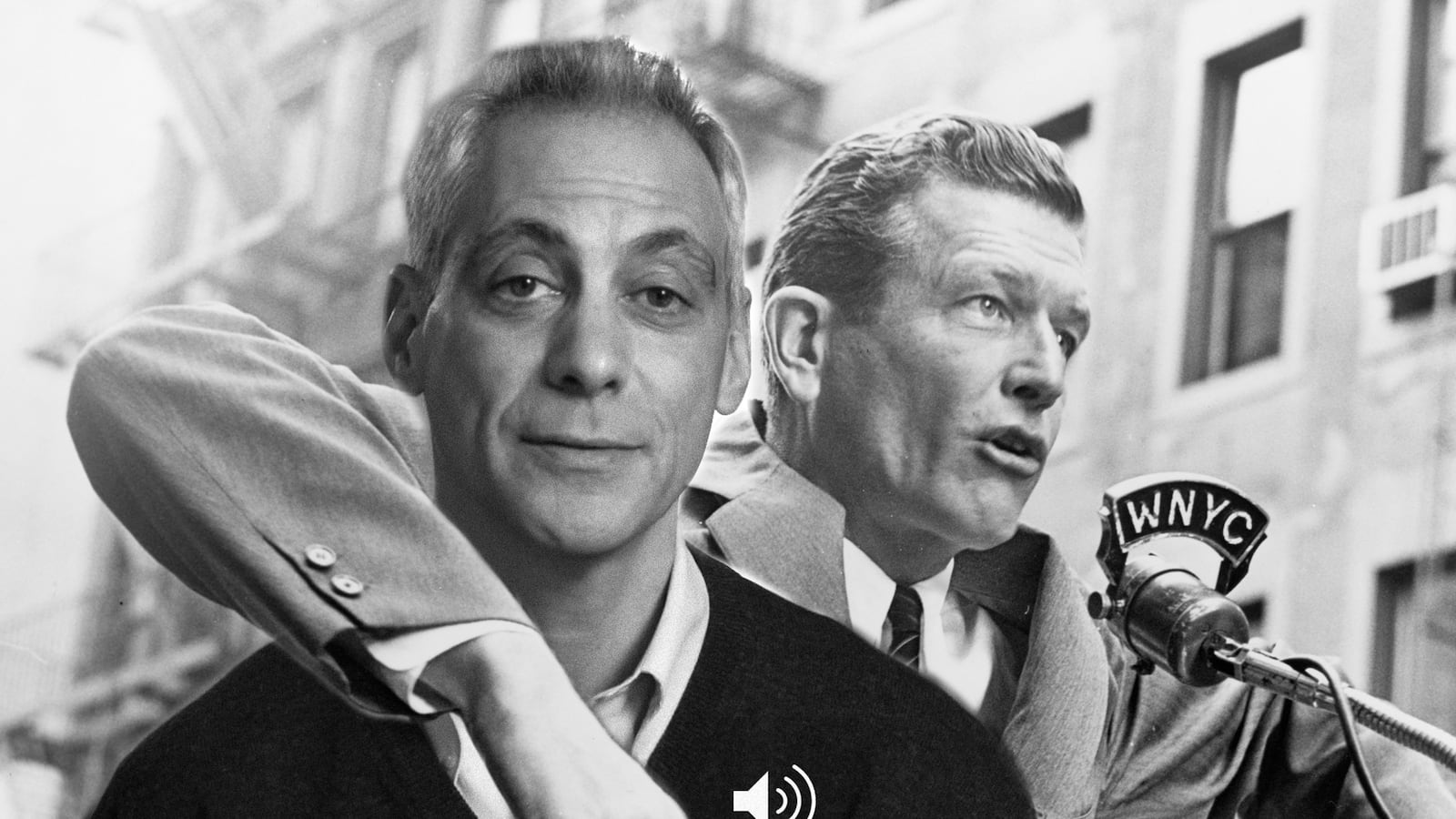He’s sitting in a gently lit living room, wearing a blue, button-down shirt, a pullover sweater, and a small smile. The pitch of his voice is soft; the words are reflective, self-critical.
“They saw your greatest strength is your greatest weakness,” he begins. “I’m living proof of that. I can rub people the wrong way…or talk when I should listen, I own that.” He then explains that he’s fought for a longer school day, tougher gun laws, and a higher minimum wage, before concluding “I may not always get it right; but when it comes to fighting for Chicago, and Chicago’s future—no one’s going to fight harder.” (You can see the whole ad here.)
The words are coming from Chicago Mayor Rahm Emanuel, now embroiled in a run-off campaign he never thought he’d have to wage, in a city where there just may be enough discontented voters to make the presumptive “Mayor for Life” a one-term leader. Polls indicate the race is now a dead heat.
What’s so striking about the ad is how closely it resembles, in tone and purpose, a commercial aired by another big-city mayor facing a tough re-election fight 46 years go: New York’s John Lindsay. Back in 1969, Lindsay had been battered by a polarizing school strike, a sanitation strike, a firefighter strike and even a police strike, and a sense among the ethnic tribes of New York that this tall, handsome, patrician WASP mayor was simply too distant, too arrogant, to understand their discontents.
So he sat on the steps of Gracie Mansion, the official residence of New York Mayors, and—clad in shirtsleeves, looked into the camera and said:
“I guessed wrong on the weather before the city’s biggest snowfall last winter—and that was a mistake. But I put 6,000 more cops on the street; and that was no mistake. The school strike went on too long, and we all made some mistakes. But I brought 225,000 new jobs to this town—and that was no mistake…The things that go wrong are what make this the second-toughest job in America. But the things that go right are what make me still want it.”
The press dubbed it the “Lindsay Eats Crow” ad; among his staff—I was his speechwriter at the time—the consumable item in question went by an earthier name. And, like the Emanuel ad, the content and the intent are two very different things.
What, exactly, are the two embattled mayors confessing to? Not much at all. Emanuel is acknowledging a personality defect; he can get into people’s faces, he can be brusque. But when it comes to the substantive complaints—closing dozens of schools, paying too much attention to “downtown” at the expense of wounded neighborhoods, the ad says nothing. In John Lindsay’s case, he “admits” to being a poor weather forecaster and for shared responsibility during the lengthy school strike—not exactly capital offenses.
It’s the subtext of the ads that really matter; in both cases, these officeholders, seen by many of their constituents as arrogant or out-of-touch, are saying, in effect: You’ve made me bend a knee to your grievances; you’ve cut me down to size; I confess my fallibility, even as I’m reminding you of the good that I’ve done. And [in Emanuel’s case] please forgive my excesses, because they reflect how deeply I care about our city.
Did the Lindsay ad shape the outcome of his re-election fight? No. What was more significant was that he was running against two very conservative opponents (back then it was possible for a divided Democratic Party to nominate a right-wing candidate); that his critique of the Vietnam War as a resource-draining disaster rallied liberals to his side; and that the Mets’ amazing World Series run helped create an aura of good will (a Mets player even dosed Lindsay with champagne in the locker room after the team won the pennant).
What the ad did accomplish was to signal at least some angry voters that Mayor Lindsay was more than an attractive face, who showed up on The Tonight Show and proclaimed New York “fun city.” It set the stage for a campaign that tried to put the city’s troubles in context: thus the slogan “It’s the Second Toughest Job in America.”
That’s exactly what Rahm’s “crow-eating” ad is designed to do. And he does have one advantage over Mayor Lindsay: with an April election, he need not rest his fortune on the possibility of a World Series victory by the Chicago Cubs.






